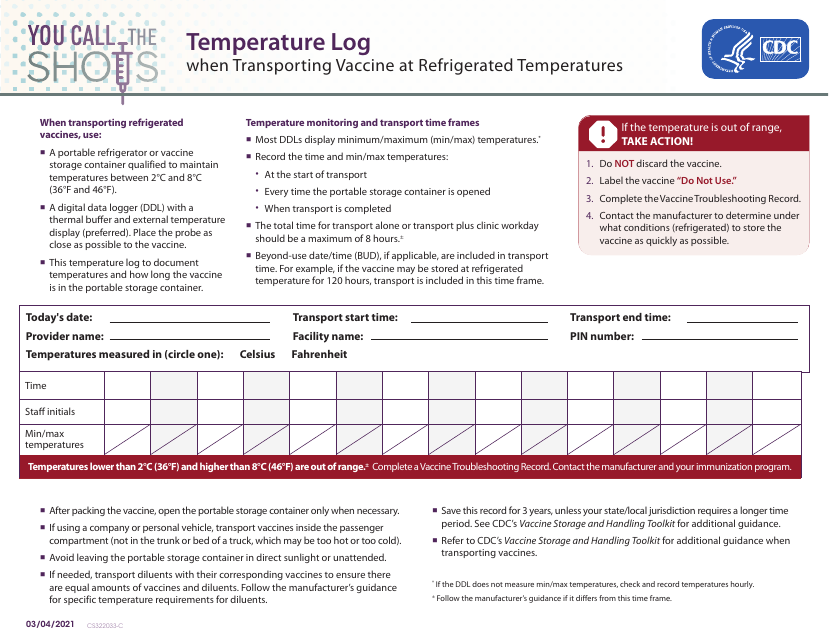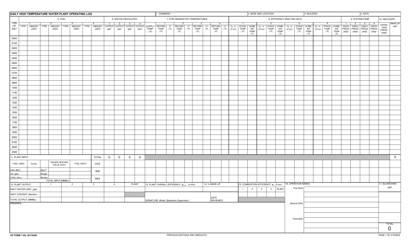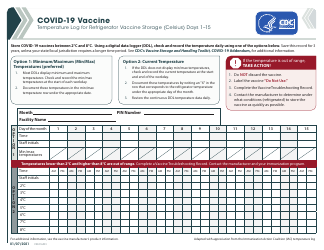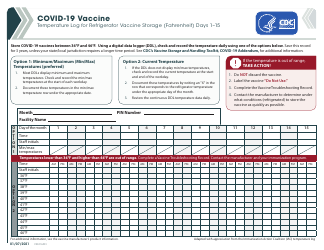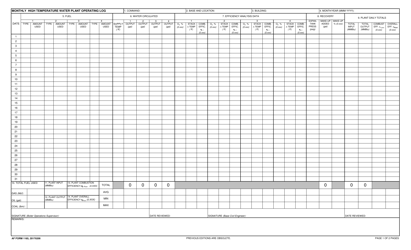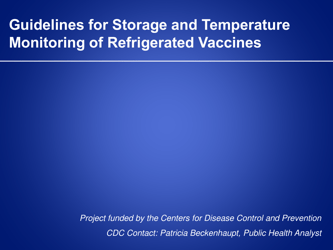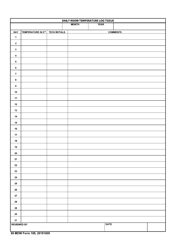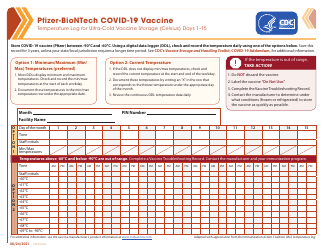Form CS322033-C Temperature Log When Transporting Vaccine at Refrigerated Temperatures
Form CS322033-C is a document utilized to record and monitor the temperature of vaccines during their transportation at refrigerated temperatures. This form is used to ensure that vaccines are maintained at recommended temperatures throughout transit to prevent any loss of potency. Data recorded includes dates, times, temperature readings, and any actions taken in case of temperature deviations. Maintaining this log is crucial for effective vaccine management and for the safe immunization of patients.
The Form CS322033-C Temperature Log is typically filed by personnel responsible for handling and transporting vaccines under refrigerated conditions. This includes personnel from logistic companies, healthcare providers, and other organizations involved in the transportation and storage of vaccines. The specific regulations and procedures may vary depending on the country, so it is important for those involved to be familiar with their own nation's rules. For instance, in the US, the Centers for Disease Control and Prevention (CDC) provides guidelines for safe vaccine transportation. In Canada, guidelines might be provided by Public Health Agency of Canada, in India by the Ministry of Health and Family Welfare, and Australia by the Therapeutic Goods Administration.
FAQ
Q: What is Form CS322033-C used for?
A: Form CS322033-C is used for logging the temperature of vaccines when they are being transported at refrigerated temperatures. It ensures the vaccines are kept at a safe and consistent temperature throughout their distribution.
Q: What kind of temperatures should be logged on Form CS322033-C?
A: The temperatures that should be logged on Form CS322033-C are typically between 2-8 degrees Celsius (36-46 degrees Fahrenheit), which are the standard refrigerated temperatures for vaccine storage and transportation.
Q: Which country does Form CS322033-C belong to?
A: Form CS322033-C is a document form which may be used globally, however specific usage would be dictated by the guidelines and regulations of individual countries or organizations in those countries.
Q: What is the importance of temperature control when transporting vaccines?
A: Temperature control is critical when transporting vaccines to keep them effective. Most vaccines need to be kept in a narrow temperature range. If they get too hot or too cold, they can become less effective or ineffective.
Q: Why is a temperature log needed during vaccine transportation?
A: A temperature log enables tracking of vaccine exposure to different temperatures during transportation. This ensures that vaccines have been kept in the right temperature range throughout their journey and helps identify any potential deviations that could affect vaccine potency.
Q: How often should temperature be monitored and logged when transporting vaccines?
A: Temperature should be monitored and logged at least twice daily- once in the morning and once in the evening. It is also advisable to check and record temperatures every time the refrigeration unit is accessed.
Q: What actions should be taken if a temperature excursion is observed?
A: Temperature excursions are deviations from the ideal temperature range. When these occur, it is important to isolate the vaccines, label them 'Do Not Use', and take appropriate steps according to the manufacturer's and local public health guidelines to assure they are safe to use or need to be disposed.
